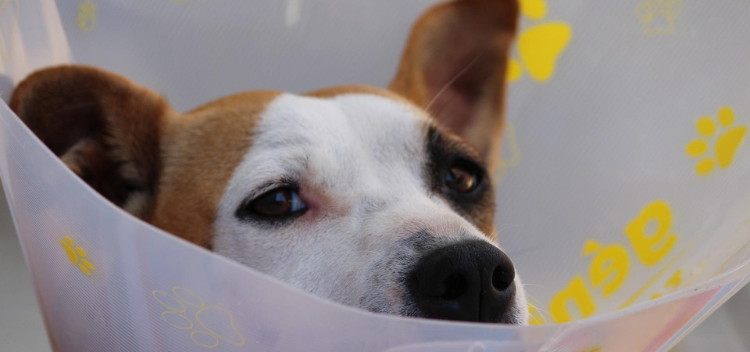
Pet neutering
If you are not planning to breed from your pet, neutering is one of the most responsible things you can have done for them. Ideally your pet will be neutered when they are very young, but we also neuter a lot of older pets too.
Your pet will be in excellent hands with our experienced veterinary team. Book a vet consultation at The Hampshire Vet so we can talk to you about when is the right time to neuter your pet.
Contact us to book a vet consultation
Benefits and types of pet neutering
Dog neutering
Female Dogs - Spay
What does a spay involve?
Spaying is the surgical removal of your dog’s ovaries and uterus through a small midline abdominal incision.
Why should I spay my dog?
- Spaying reduces the chance of your dog developing mammary cancer. The maximum protective effect of spaying is achieved if your dog is spayed before their first season. This protective effect is reduced after the first season and each consecutive season. We do however recommend that large breed dogs are only spayed once fully grown.
- Spaying eliminates the chance of your pet developing ovarian cancer.
- Unspayed dogs can develop an infection of the wound known as pyometra, a life-threatening condition that often requires emergency surgery.
- Neutering reduces the risk of accidental pregnancy and its associated health risks and costs.
Male Dogs - Castration
What does castration involve?
- This procedure involves removing your dog’s testicles under general anaesthesia. Castration involves your dog staying with us for the day.
- Chemical castration is also available. This is done by placing a chemical implant under the skin. It lasts for 6 months.
Why should I castrate my dog?
- Castration eliminates the risk of your dog developing testicular cancer.
- It reduces the risk of prostatic diseases commonly seen in un-neutered dogs including benign prostatic hyperplasia.
- Un-neutered dogs can be prone to developing perineal hernias, a painful condition that can make it difficult to pass stools.
Cat neutering
Why should I neuter my cat?
- Cats can start breeding from 4 months of age.
- Cats come into season very regularly, often every 1 to 2 weeks for a 2-week period during the summer months.
- Cats become pregnant very easily and can be impregnated by siblings.
- There are vast numbers of unwanted cats and kittens in the UK as cats can have multiple litters a year and come into season again six weeks after giving birth.
Female Cat Spay
What does it involve and what are the benefits?
- Spaying is the surgical process of removing the ovaries and the uterus through a small incision in the cat’s abdomen, this is normally done through their left flank.
- Cats can typically go home the same day.
- Spaying reduces the risk of unplanned pregnancies.
- It reduces the risk of mammary cancer by up to 90% and completely removes the risk of ovarian and uterine cancers.
Male Cat Castration
What does this procedure involves?
- This is the surgical removal of both testes via a small incision in the scrotum.
- Cats can typically go home the same day.
If you are thinking about neutering your pet, talk to our team for advice – contact us.
Why choose The Hampshire Vet to neuter your pet
At The Hampshire Vet, our experienced veterinary team will take excellent care of your pet before, during, and after their neutering procedure. We have a well-equipped operating theatre and separate recovery rooms for cats and dogs at our Basingstoke surgery. See all our facilities.
Your pet will be monitored closely throughout the procedure and will receive lots of love and attention from our team.



